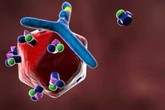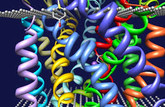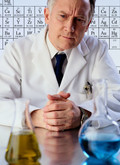Reports
Key considerations for payers, employers and patients in the US biosimilars market
While financial savings are important for driving biosimilar uptake, they are not the only consideration for payers and providers. Other factors include manufacturer reputation for producing high-quality products, reliably supplying these products, and understanding provider and payer clinical, economic and operational needs and decision-making drivers.
Key considerations for providers in the US biosimilars market
When it comes to the adoption of biosimilars, healthcare professionals (physicians, physician assistants, nurse practitioners and pharmacists) are key, noted in the Biosimilars 2020 Trend Report. They must have confidence in biosimilar approvals and support their uptake through prescribing. Providers need to have operational processes in place to allow for the use of biosimilars and must have assurance that these products are covered by payers. Most importantly, they have a key role in educating patients and ensuring the safe everyday use of biosimilars.
US market trends in oncology/nephrology supportive care and inflammation biosimilars
This article provides an overview of the biosimilars currently available in oncology supportive care, nephrology/oncology supportive care and inflammation in the US.
US biosimilars trends in oncology therapeutics
The Biosimilars Trend Report published in 2020 describes the landscape for biosimilars in the US. The current biosimilars available for oncology therapeutics are trastuzumab, bevacizumab and rituximab. Overall, biologicals make up approximately half of all oncology products and they are expensive due to higher development and production costs. Biosimilars offer an opportunity to reduce the cost of oncology treatments. As of July 2020, 12 oncology biosimilars were available in the US.
The US biosimilars market in 2020
The 2020 Biosimilars Trend Report opens by stating that the US marketplace is ready to welcome many new biosimilars in 2020 and the years to come [1]. Recent US regulations have levelled the playing field for biosimilars and reference products. For example, the Centers for Medicare and Medicaid Services (CMS) has made changes to the US reimbursement system which has established a Healthcare Common Procedure Coding System (HCPCS) and payment rates for biosimilars. Such changes are hoped to foster competition and create a more sustainable marketplace.
Biosimilars trend report 2020
The seventh edition of the Biosimilars Trend Report 2020 has been published. This 2020 report was developed based on input from members of the healthcare community in the US [1].
Smart healthcare spending and the Falsified Medicines Directive in Europe
The European Federation of Pharmaceutical Industries and Associations (EFPIA) has issued a white paper on ‘Strengthening health systems through smart spending’ and a ‘Benefits beyond the EU Falsified Medicines Directive - The hospital setting’ report.
Challenges faced by biosimilar orphan drugs in European health systems
As treatments for rare diseases become a greater healthcare priority, the contribution of biosimilars as a means of reducing costs and increasing patient access will become more important for the long-term sustainability of health systems [1]. While the current impact of non-orphan biosimilars suggests this contribution could be significant, uptake of biosimilars across Europe remains variable and there is a risk that sustainable competitive markets are not yet established. A recent review of biosimilar policies in Europe found that key principles for a sustainable biosimilar market include supporting innovation, physician prescribing freedom, and allowing for multiple suppliers [2].
Commercialization challenges for biosimilar orphan drugs
Companies seeking to commercialize orphan drug biosimilars are likely to face challenges associated with limited potential market size, uncertainty regarding expanding patient access and loyalty to the reference product.
Clinical development challenges faced by orphan drug biosimilar developers
Biosimilar development is more costly and requires greater effort to conduct analytical and clinical testing than generic drug development. These challenges can be amplified when developing a biosimilar of an orphan drug.













